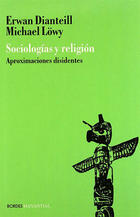The theme of the secularization of contemporary societies profoundly marked the birth of the sociology of religions. The authors presented here (E. Troeltsch, K. Mannheim, E. Bloch, A. Gramsci, M. Mauss, Z. Neale Hurston, R. Bastide, L. Goldmann and P. Bourdieu), without ceasing to be tributaries of the problems defined by the "founding fathers", however, are significantly removed from them.
In their great diversity, these analyzes are less focused on the undermining of religion than on the ability of religious actors to create social, even modern, forms. Drawing inspiration from Marx, Durkheim or Weber, they thus distance themselves considerably from them when it comes to accounting for the relations between religion and society: they are heterodox and unfaithful disciples, and their approaches have, in relation to the first great classics, a dissident character. It is, on the ...read more
Shopping cart
Loading cart
Important notices
|
|
Recordando a André Rouillé: Su legado en la fotografía André Rouillé 1948 - 2025 |
|
|
Libros de filosofía y co. Disponibles en Librería Herder |
|
|
Revista Filosofía & Co. nº 9 Nueva revista de filosofia divulgativa y actualidad |
|
|
"Espacios de la filosofía" - Mauricio Beuchot - Novedad Herder México |
|
|
Revista Filosofía & Co. nº 8 Nueva revista de filosofia divulgativa y actualidad |
Pay safely with:


In the webshop
New
|
|
Medios calientes 70159 $400.00 -0.00% $400.00 |
|
|
El bestiario de Michel Foucault 70404 $749.00 -15.00% $636.65 |
|
|
Cantan los ángeles, rugen los monstruos 69202 $510.00 -0.00% $510.00 |
|
|
Amigdalatrópolis 70157 $390.00 -0.00% $390.00 |
|
|
El arte de la fantasía 70407 $759.00 -15.00% $645.15 |
In the press
Promotions
|
|
Panorama A1.1, Deutsch als Fremdsprache Übungsbuch 36726 $235.00 -35.00% $152.75 |
|
|
Diccionario de términos filológicos 70241 $900.00 -25.00% $675.00 |
|
|
El tratamiento de los niños autistas 70240 $675.00 -25.00% $506.25 |
|
|
Historia del arte I 70244 $1,545.00 -25.00% $1,158.75 |
|
|
Introducción a la filosofía 70243 $620.00 -25.00% $465.00 |











